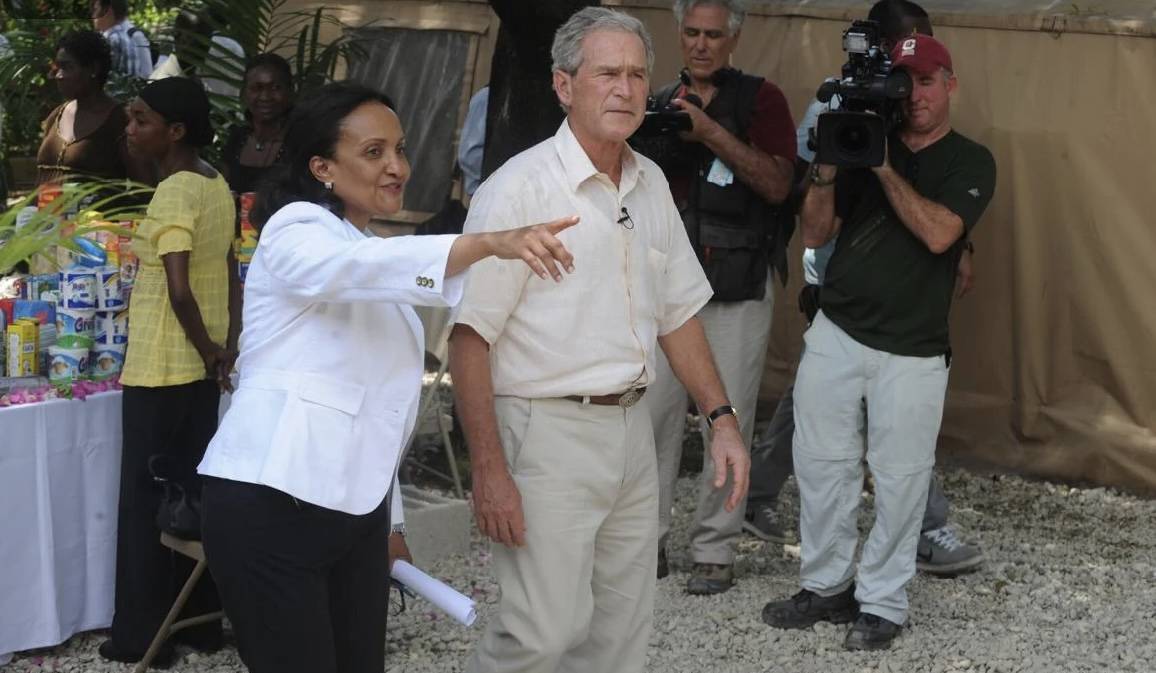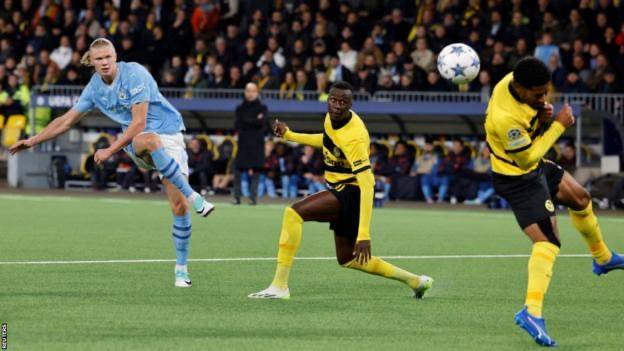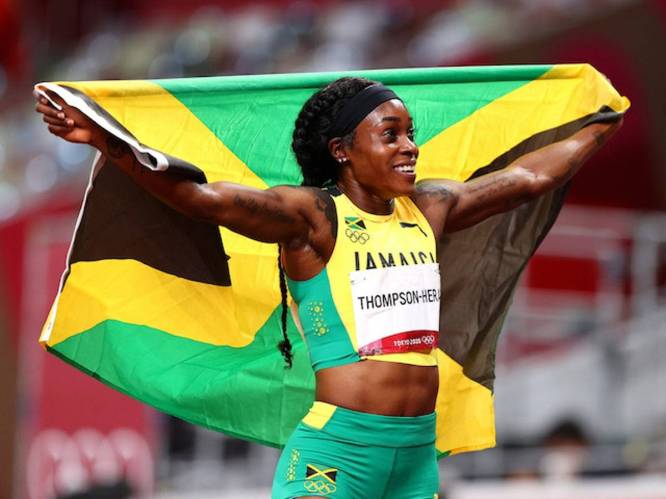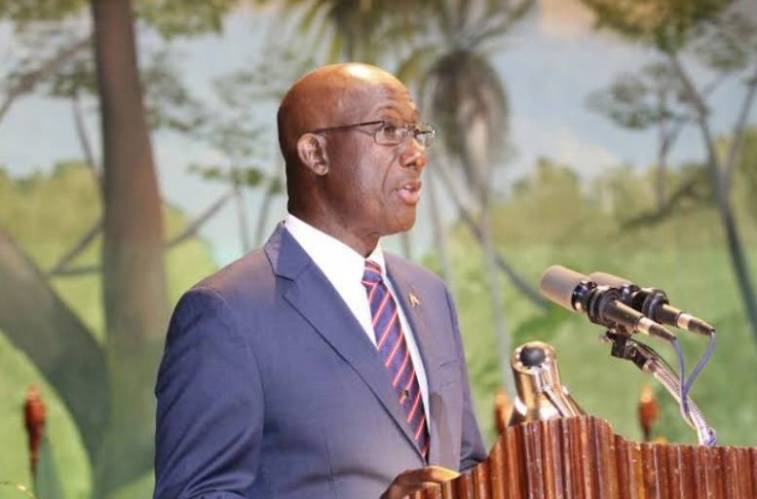Haiti doctor is a finalist for peace award

In Haiti, where the battle against the virus that causes AIDS has been hard fought, Dr. Marie-Marcelle H. Deschamps knows that women are key: give a woman a job, she once said, and watch her not only take charge of her life but also cut HIV transmission.
That philosophy, which Deschamps shared with first lady Laura Bush in 2008 as she visited patients and workers at the Haitian Study Group on Kaposi’s Sarcoma and Opportunistic Infections, which is known by its French acronym GHESKIO, is once again informing the treatment of the disease.
Nowadays, the battle at the world renown Caribbean research clinic, founded in 1982 by Dr. Jean William “Bill” Pape, isn’t just against AIDS. It’s also against the scourge of armed violence that is once more placing women and girls at the epicenter of another Haitian crisis.
That reality has led Deschamps, a vibrant physician who begins her morning with exercise and prayer, to introduce a global health model focused on providing essential services to female heads of family and rape victims in a troubled Haiti where children are increasingly malnourished and access to health services limited. She is GHESKIO’s second in command after Pape.
With almost half of the population facing deep hunger, Deschamps, 70, has developed, among other programs, a simple but yet lifesaving and life-changing intervention to provide electronic transfers of cash and food kits to 20,000 beneficiaries.
For her work, she is now among four finalists being considered for the 2023 Women Building Peace Award from the U.S. Institute of Peace, a U.S. government-created institution tasked with promoting conflict resolution and prevention around the globe.
In its recognition of Deschamps, the institution describes her as a strong advocate for education who arms women with marketable skills.
The other three finalists are Abir Haj Ibrahim of Syria, Pétronille Vaweka of the Democratic Republic of the Congo and Hamisa Zaja of Kenya.
They are among dozens of nominees whose names were sent in from 42 countries. Their selection was made by a 15-member group of experts and leaders in the field of gender issues and peace-building for their commitment and leadership toward peace, and their key roles in ending and preventing violent conflict.
For Deschamps, the nomination itself is an honor, she says because it serves as a reminder to the world about Haiti’s ongoing plight and that of its health care workers who face the same security challenges as the patients they serve: Doctors are being kidnapped and held for ransom, and some have been killed. Others are being forced into unemployment as gangs take over their neighborhoods and facilities.
“The situation in Haiti is similar to so many other countries,” Deschamps said, noting that GHESKIO, considered the leading HIV/AIDS research center in the Caribbean, has faced one struggle after another with the ongoing gang-ridden crisis that has increased needs while curtailing access.
Some 15 years after Bush’s visit to see the work that GHESKIO was doing, Deschamps said the work she and her colleagues are carrying out in Haiti speaks to the determination and vision of the GHESKIO team.
“We have not changed our vision,” she said. “It remains the same and, in fact, it has been reinforced.”
Deschamps believes that one way in which GHESKIO has continued to succeed despite the limitations is through its approach, which involves keeping its focus on women.
“I take the time to listen to the women and I think that’s what’s missing now in the society,” she said. “By listening to my patients, to the women mainly, I realize that the health, the economic situation, they are all connected, and you cannot say you’re going to solve one without addressing the other.
“The woman,” Deschamps added, “is the epicenter of her family, even when the men are there, or not there; everything depends on the women in Haiti. I’ve focused on that and said, 'This is the person I have to work with if I want to have an impact.'"
It is not easy to provide health care in Haiti. Between kidnappings, gang violence and a humanitarian parole program that allows Haitians with financial sponsors to legally migrate to the United States, the country is hemorrhaging doctors, nurses and other health care professionals.
At GHESKIO itself, the challenges have been equally daunting. The clinic’s main center in Port-au-Prince is located across from one of the largest gang-controlled slums. When kidnappings began to spike, the clinic found itself in danger like everyone else, as staff members began to be abducted.
Deschamps said the clinic has had more than a dozen staffers kidnapped and held for ransom. She recalled recently sitting in her office and thinking, "We cannot be coming here every day and they are kidnapping us. We do not have money to pay."
“All of our staff are brave women who come here to work, to help you because you have HIV, you have tuberculosis, you have cholera, you have COVID, you have malaria,” she said. “And you’re kidnapping us?”
That’s when the decision came to temporarily close the clinic, which also houses a school where neighborhood children receive daily hot meals.
Then the unexpected happens. The clinic and its staff found an ally against the gang members in the very women they serve.
“The women put uniforms on their children, and they went to [the gang members] some of them were their partners, some of them were their husbands, and they asked, ‘What are you doing to your children?’” Deschamps said. “We stayed closed for three to four days … and you know what, they sent a message, ‘Tell the staff we are not touching them.’”
Still, it doesn’t mean they are not at risk. Staffers continue to become victims as loved ones get kidnapped and held for ransom.
“I know the risks are there, but we all have to take a risk and know that we are on a mission, and you choose your battle,” said the cancer survivor, who says she prays every day for God to keep her healthy to continue the fight. “We each have a battle, and mine is staying here.”






0 Comment